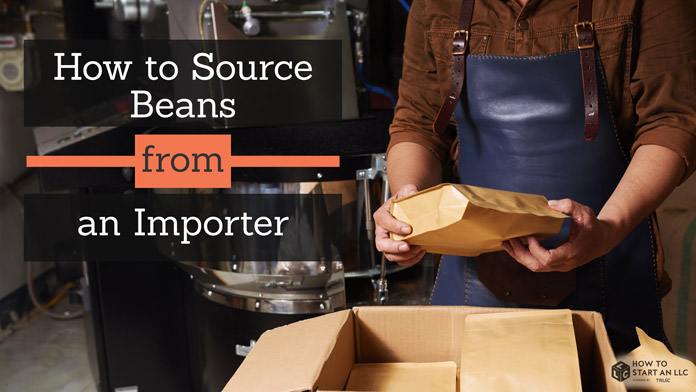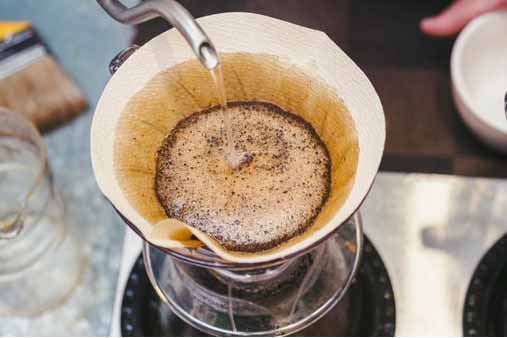How to Source Coffee from an Importer
Navigating the ins and outs of coffee sourcing can feel like an overwhelming and complicated process.
This guide summarizes what’s involved — and what to look for — when buying coffee beans from an importer so you can make an informed decision for your roastery.
Recommended: Read our full, in-depth How to Start a Coffee Shop Business guides, inspired by coffee professionals, they will help make your coffee dreams real, from sourcing beans to hiring baristas, forming an actual company, and everything in between.

What's the Process?
Working with an importer essentially removes all the legwork and liability associated with buying green coffee beans directly from a farm. These trained experts know how to source coffee from around the world while maintaining quality and consistency. That means you, as the roaster, need not worry about all the details involved in importing your preferred coffees.
As you evaluate different coffee importers, here are a few examples to give you a sense of the services and products they typically offer:
- Atlas Coffee Importers
- Cafe Imports
- Costa Oro Green Coffee Solutions
- Mercanta
- NordicApproach
- Sustainable Harvest® Relationship Coffee
What are the Pros & Cons?
Pros
- Limited liability. This is one of the biggest benefits of buying coffee through an importer. You’re not subject to the same risk factors as a roaster buying directly from a farmer because importers assume responsibility for ensuring the quality of the coffee you order.
- The option to buy beans from other regions in case of bad weather. It’s almost impossible to ensure you’ll receive the same quality of coffee from the same farm with every order. Each lot of coffee differs significantly based on the environmental conditions of the growing season. That means some coffees you ordered in the past may no longer be available.
Cons
- Higher prices. You will pay more for the service an importer provides than you would buying directly from a farm. However, when you buy beans from a farm, you’ll still incur additional expenses to import your coffee.
- Lack of influence over the treatment of farmers. One key benefit of buying from a farmer is the relationship you can develop with the people producing your coffee. This includes ensuring the producers receive fair wages and quality living standards.
Check out our guide on How to Buy Ethical Wholesale Coffee Beans
Key Differences Among Origin Countries
The main differences between each coffee-producing country include the soil, elevation, and temperature associated with farms growing coffee plants.
Fertile soil is essential for producing high-quality coffee. On farms with higher soil fertility, coffee plants can produce larger yields and better defend themselves against disease — especially important when growing Arabica beans, which are susceptible to diseases like leaf rust. Yet, a soil’s fertility largely depends on the amount of volcanic ash, clay, and/or limestone it contains. Volcanic ash, for example, adds valuable minerals, such as feldspar, quartz, magnesium, cristobalite, and tridymite. Similar to the farming of wine grapes, a soil’s nutrient content plays a large role in a plant’s health and the flavor profile of its fruit.
“In order for a coffee plant to produce 100 pounds of green coffee (1 quintal), it must extract from the soil approximately 1.45 kilograms of nitrogen, 0.28 kilograms of phosphorous, and 1.74 kilograms of potassium.” – Luis Alvarez Welchez, manager and agronomist, ProSuelos Initiative
A farm’s altitude, in addition to its soil conditions, directly impacts the flavor profile of coffee grown there. This is because altitude affects the temperature in which coffee plants grow and temperature can boost or hinder a plant’s ability to absorb nutrients from the soil. Moreover, coffee plants growing at higher altitudes and lower temperatures also can photosynthesize longer. This allows the plant to metabolize nutrients in the soil and produce bigger, healthier cherries. The end result is a desirable hard coffee bean with a high sugar content. In contrast, plants that absorb fewer nutrients due to poor soil and/or hotter growing temperatures tend to produce softer beans with low sugar content.
There are, however, exceptions to this general rule. Hawaiian coffee grows at a relatively low elevation, but, due to the island chain’s location far north of the equator and ample shade to guard plants from the sun, it produces high-quality coffee at a lower altitude.
Final Considerations
If you plan to buy your beans from an importer, the process is fairly straightforward. Contact your potential importer to set up a “cupping” event to sample their coffees and then work with them to place your order.
If you prefer to source beans directly from a coffee farm, there’s a bit more work ahead of you. First, you must travel to the farm(s) in order to “cup” their coffee before you make an order. While this “cupping” trip will enable you to start developing relationships with your farmer(s), you will need to hire a translator to accompany you unless you speak the local language.
If you decide to buy coffee beans from a specific farm after your “cupping” trip, you must then connect with an importer to help you with the shipping and handling of your coffee. Why? Because importers have expertise not only in managing customs and duties imposed on coffee shipments, but also on how to properly transport green coffee beans across borders based on the specific varietals and regions from which you order.
When selecting an importer, keep these considerations in mind:
- Storage is a major factor in ensuring the quality of your beans upon arrival. Do some research about the practices of your importer’s transportation services, including temperatures during transport, shipping time, and handling of your product.
- Minimums are another factor in ordering for your business. If an importer has a larger minimum than you are able to roast or store in a short amount of time, you could end up wasting money and product.
- The frequent availability of beans from specific origins also is important. Ensure you’re able to use a variety of coffees and origins provided by your importer as lots can differ wildly depending on season, climate, and politics.
- Some importers also can help you ensure you buy fair trade coffee for your business. For example, Crop to CupTM Coffee Importers, Pachamama Coffee, and Copan Trade LLC are just a few importers offering this service.
Pro Tip: Ask around in your community and online before choosing an importer to gain an understanding of their practices.
Developing a Coffee Shop Business
Choosing where and who to source your beans is part of Developing a Coffee Shop Business as it can have an impact on your brand, and choices in your overall menu and marketing strategy.
If you need help branding your coffee business, try using our Free Coffee Shop Logo Maker. Our free tool will help you brand your coffee business with a unique logo to make your small business stand out.

